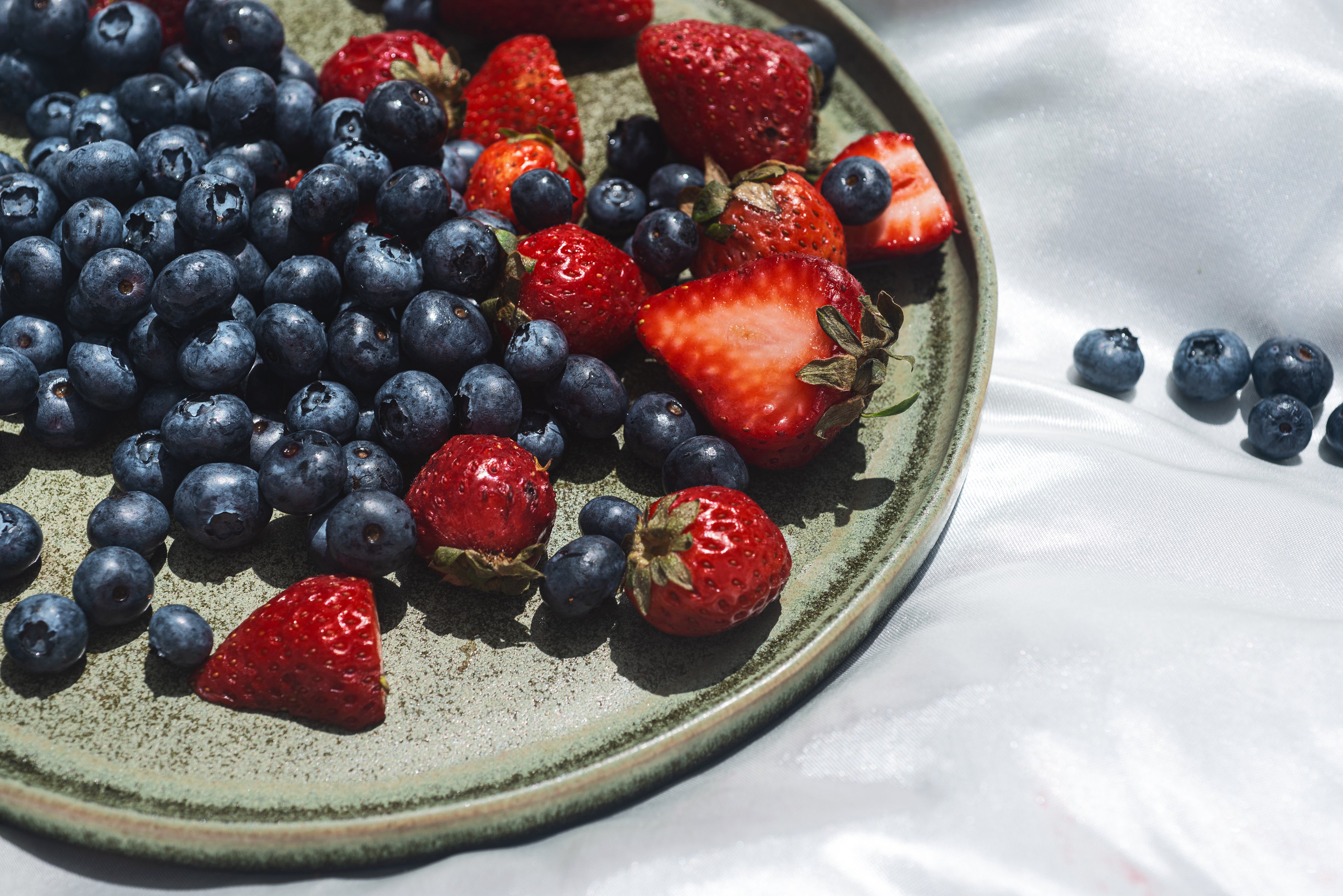How Nutrition Affects Your Skin
Skin plays a crucial role in guarding against UV rays, dehydration, toxic chemicals, environmental hazards, and harmful bacteria. With the outer coating working so hard to care for your body, it’s only fair you return the favour by protecting and nourishing your skin.
Despite the plethora of information and endless pricy products, caring for your skin isn’t rocket science. There are several ways to achieve a glowing complexion, such as drinking plenty of water to stay hydrated. You can also get plenty of good quality sleep, exercise regularly, adopt a good skincare routine, and follow a nutritional diet.
Nutrition plays a key part in achieving a naturally radiant complexion. To renew and repair the skin you need to eat a range of healthy foods containing vitamins, minerals, antioxidants, proteins, and omega-3 fatty acids.
You can also use nutritional skincare, following a simple but effective routine using natural products. Let’s take a closer look at nutrients, the role they play in boosting your complexion, and where you can find them:
Vitamin C
Vitamin C promotes collagen production, providing your skin with structure, durability and elasticity. The essential protein is also an antioxidant and works to combat toxic cells, repair damage, and reduce wrinkles. On top of that Vitamin C encourages fibroblast cell creation to maintain healthy skin.
Where to find Vitamin C: Veggies and fruit including apples, strawberries, oranges, broccoli, and spinach.
Glucosamine
An amino sugar known for promoting the creation of lipids and proteins, Glucosamine works hard to keep your skin looking and feeling good. Glucosamine also aids the production of hyaluronic acid, which strengthens skin tissue.
The amino acid impedes the creation of melanin too, tackling the troublesome pigment by combatting age-related dark skin patches.
Where to find Glucosamine: Shellfish, but if you’re not a fan of tucking into crustaceans and mollusks you can take a supplement to optimize your diet.
Carotenoids
The powerful carotenoids (plant pigments) Lutenin and Zeaxanthin are good for your eyes and skin. The pair work as one to protect against blue light (also known as HEV High Energy Visible Light) produced by the sun, laptops, mobile phones, etc.
Where to find carotenoids: Yellow and orange foods such as carrots, peppers, oranges, and melons. Lutenin and Zeaxanthin can also be found in salmon and leafy veggies e.g. kale and lettuce.
Curcumin
Derived from the spice Turmeric, Curcumin is a phytonutrient credited with battling puffy, swollen skin. If you suffer from irritated skin, Curcumin can help even out your skin tone and smooth your complexion.
Where to source Curcumin: Turmeric, curry powder, curry dishes, and mango ginger.
Alpha-Lipoic Acid
Commonly known as ALA, Alpha-Lipoic Acid is a powerful universal antioxidant celebrated for its ability to combat free radicals. ALA attaches to oxidants to reduce the prospect of wrinkles and skin damage. The acid also works to even out skin tone, reduce blemishes, combat redness, and regulate nitric oxide levels. Nitric oxide controls blood flow – boost your blood flow and you’ll boost your complexion.
ALA has other benefits too, such as regulating the creation glutathione, a powerful antioxidant molecule. It also assists the biochemical citric acid cycle responsible for transforming food (macronutrients) into energy.
Where to source Alpha-Lipoic Acid: Kidney, liver, heart, broccoli, Brussel sprouts, and spinach.
Vitamin A, B2, B3, B6, D and E
These essential vitamins keep your skin healthy and functioning to its best ability.
Vitamins can help slow the signs of aging, aid moisture retention, prevent hyperpigmentation (dark patches of skin associated with aging), combat acne and skin irritation, heal wounds, and protect against harmful UV rays.
Where to source vitamins -
Vitamin A: Cheese, oily fish, eggs, milk, yogurt, low-fat spreads, liver
Vitamin B2: Liver, soybeans, tempeh, eggs, Greek yogurt, roe, button mushrooms
Vitamin B3: Brown rice, meat, avocados, green beans, chicken breast, peanuts, liver
Vitamin B6: Fish, potatoes, pork, chicken, tofu, beef liver, fruit (not citrus)
Vitamin D: Herring, salmon, mackerel, butter, milk, cheese, yogurt, dark chocolate
Vitamin E: Sunflower oil, almonds, hazelnuts, salmon, red pepper, squash, mango
Zinc and Selenium
Zinc shields the skin, protecting it from harmful UV rays and helping to combat skin conditions such as acne. The powerful antioxidant guards against free radicals and accelerates healing.
Selenium fights the aging process with gusto. The formidable antioxidant properties combat free radicals and help maintain skin elasticity. This keeps your complexion looking rosy and reduces the appearance of wrinkles.
Where to source Zinc and Selenium: Beef, turkey, shrimp, milk, yogurt, cheese, cashews, Brazil nuts, chickpeas, lentils
H2O
Let’s not forget the importance of consuming plenty of good, old-fashioned water. Downing H2O hydrates the skin, getting rid of nasty toxins and rewarding you with a plump, radiant, and smooth complexion.
Nutritional Skincare for Glowing, Radiant Skin
Make the right choice for your skin by opting for a diet rich in vitamins, minerals, proteins, phytonutrients, and omega-three fatty acids. Combine a healthy diet with plenty of sleep, exercise, and natural skin care products from Jana Skin to achieve the glowing radiant skin of your dreams.
Inspired by unspoiled Australian beaches, Jana Skin products are natural, pure, cruelty-free, and formulated with quality botanicals. Suitable for all skin types, the Jana Skin Ocean Ocean Botanicals range boasts antioxidants to detoxify and refresh your skin. Seaweed and algae are powerhouse skincare ingredients, calming inflammation, hydrating, and revitalizing the skin.
By following a healthy diet and using the Seaweed & Algae mask alongside a robust skincare routine you can look forward to hydrated, smooth skin and a beautiful glowing complexion.




Comments